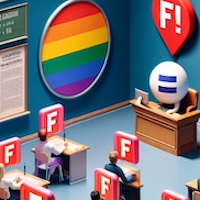Rapper Chuck D of Public Enemy fame delivered a talk about the new wave of music marketing that sounded eerily like lots of recent speeches on direct marketing in the age of the Web. “Traditional music looked at the public only as consumers,” he declared in the keynote for CMJ’s Music Marathon last month in New York. On the Internet “you have to look at the public as a participant, a would-be partner, and give them the opportunity to consume.”
Chuck D, an outspoken advocate of Napster, MP3 and future forms of file-swapping, believes music-swapping technology will have the same effect on music that radio did: It will encourage sales. And while that music is shared and downloaded from the Net, those sales also will be made on the Web. Online music businesses give potential customers the chance to check out a group, sample its music — and then buy.
The technology might also bring about the death of the traditional music business, which the rapper referred to in one of his kinder barbs as “a disorganized hustle.”
Record executives of the Big Six record companies used to make “300% on the dollar,” Chuck D said in his lively, expletive-laced talk that kept the mostly twentysomething crowd laughing and engaged. “Now, the chickens have come home to shoot,” he quipped. “Trying to stop [file sharing] is like trying to stop the rain. Napster leads the pack, but there are 10,000 Int-ies [independent Internet record companies] to come.”
This means loss of profits for the traditional companies and better opportunities for artists to make money, said the rapper who founded www.rapstation.com, which supports young musicians. “There’s nothing wrong with corporate-izing, as long as there are many corporations,” he remarked. “Monopolizing is terrible.”
“Sure, there’ll be more than 1 million artists out there with 1 million labels,” he admitted. But the best of the lot will be heard and make money. “Cream rises to the top.”
Chuck D’s advice to those who want to rise to the top is sound for any dot-com. “Don’t try to be everything to everybody,” he warned. “If it costs you a lot of money to make your product, you better scale it down.”
His prediction for the traditional studios? “It’s over, baby. MP3 has a damn near unbeatable format.”
 Network
Network

